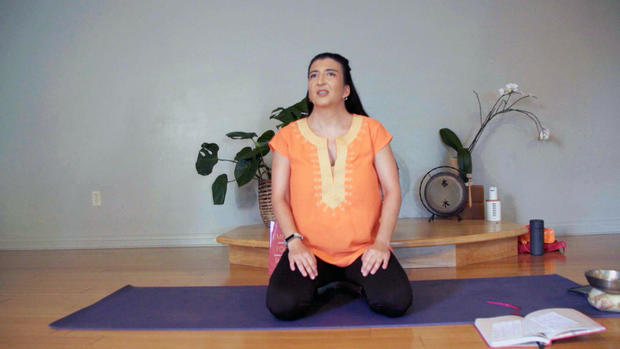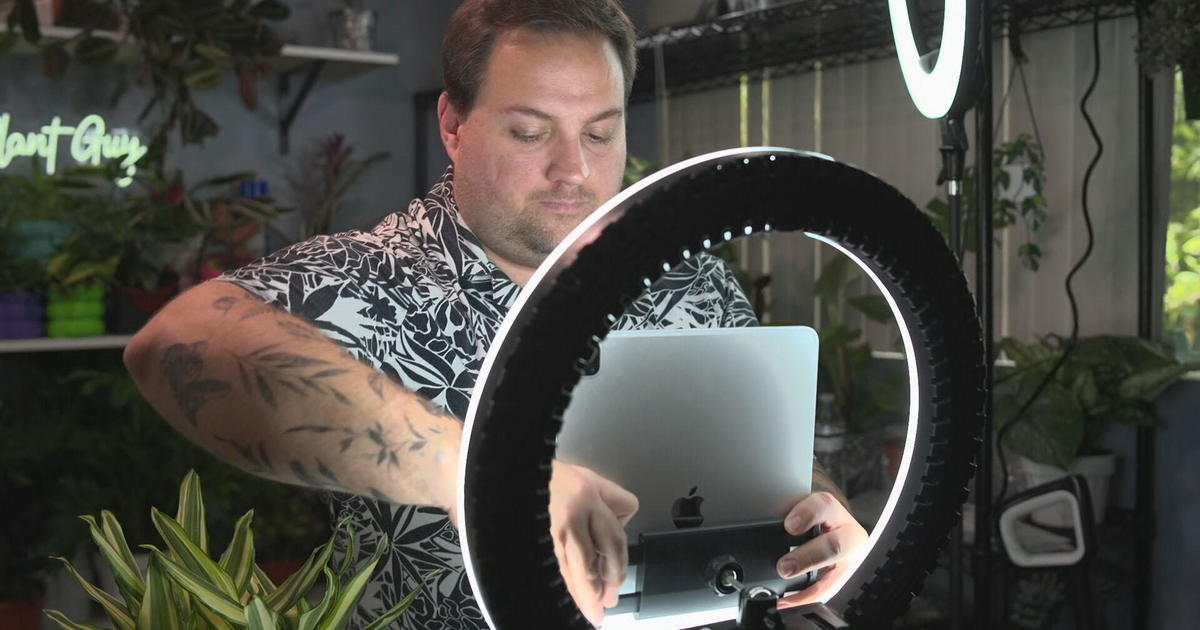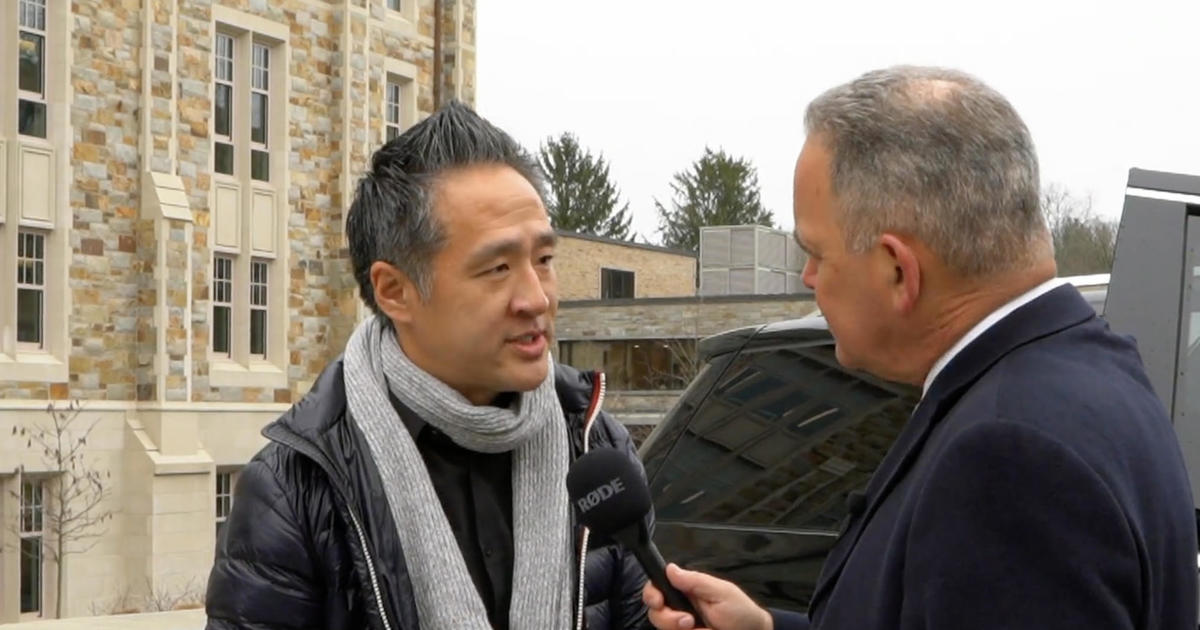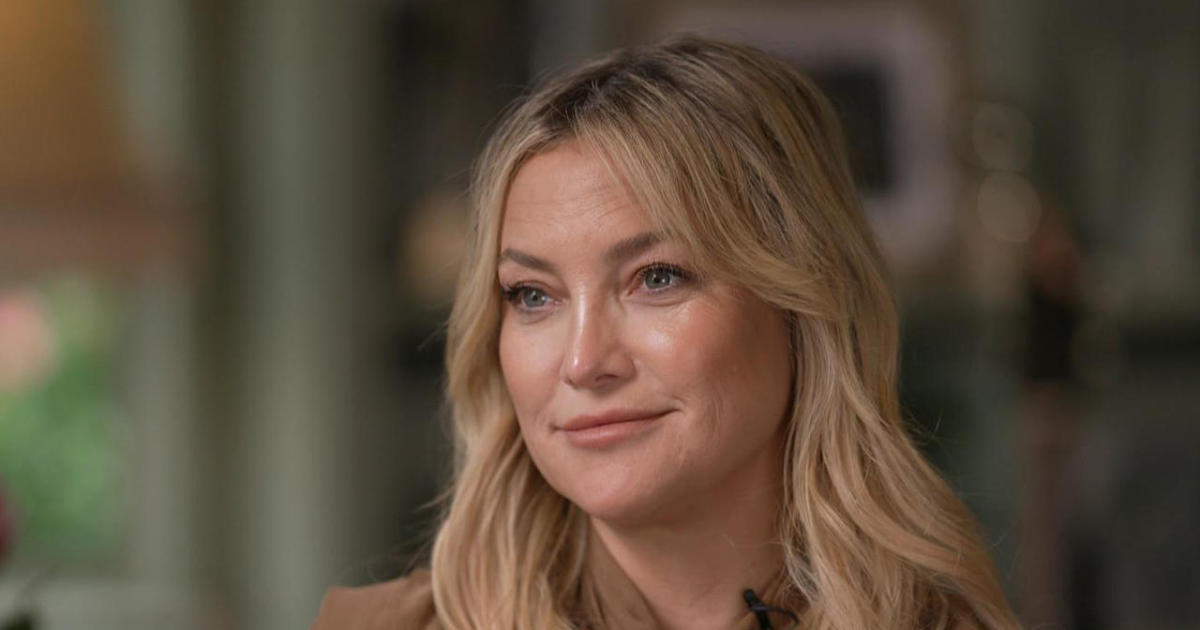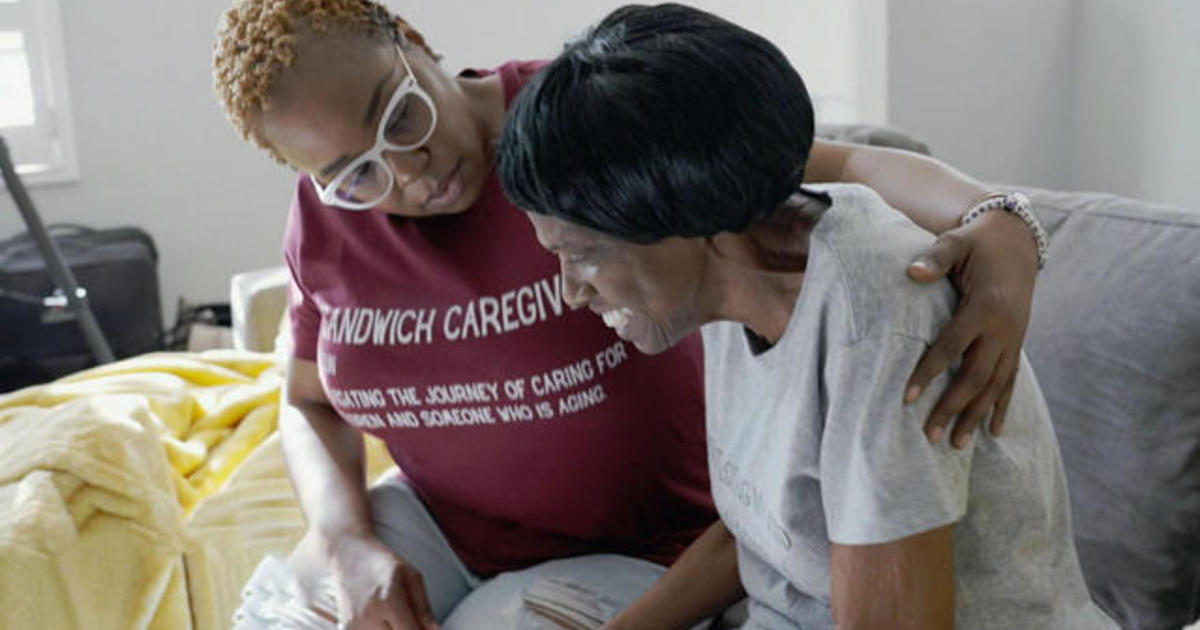How conspiracy theories "infiltrated" the wellness community
Watch the CBS Reports documentary "Conspirituality: How Wellness Became a Gateway for Misinformation" in the video player above.
Susanna Barkataki, a yoga teacher in Los Angeles, saw it unfold on her social media feed starting last year.
"It was so fascinating, because they were using words that spoke to me and people like me," Barkataki told CBS News' Adam Yamaguchi. "They were saying phrases and hashtags like, 'Where we go one, we go all.' That's like, OK, yeah, that sounds very yogic, right? ... Or the 'Great Awakening.' I mean, that's samadhi, that's enlightenment."
The instructor, whose influence spans beyond her studio to over 68,000 Instagram followers, quickly realized those phrases stemmed from QAnon, the conspiracy theory that started as a fringe movement among supporters of former President Trump. She also noticed people questioning whether COVID-19 was a government conspiracy or a "plandemic" — echoing a notorious video that was banned from Facebook and YouTube for spreading dangerous falsehoods about the virus.
"I was shocked, because people I knew, friends, colleagues, other yoga teachers, were starting to jump on the bandwagon of these conspiracy theories. And I thought, 'Wait, these are people who I know and who I respect. Why are they sharing this misinformation?'" Barkataki recalled.
Conspiracy theories "infiltrated slowly," she said, helped along by the fact that some members of the yoga and wellness communities were already inclined to question and diverge from mainstream authorities on health and science.
"So that made yoga practitioners and wellness practitioners really vulnerable to this time of misinformation," Barkataki said. She crafted a collective statement with other yoga practitioners to take a public stance against QAnon and misinformation.
Anusha Wijeyakumar, who is the wellness consultant at Hoag Hospital and founder of the holistic wellness organization Shanti Within, has noticed a similar trend. She explained how the Western version of yoga — which she describes as a departure from its ancient roots — spawned a subculture that has become a "hotbed" of misinformation.
"In many ways, yoga and wellness has become a place of anti-science. So, just some quick examples: people peddling the juice cleanse that is going to solve all of your problems. When we see the fat shaming, the rise of the toxic diet culture in yoga and wellness. We also see the love of crystals. I love a crystal ... there's absolutely nothing wrong with liking crystals. However, crystals curing cancer? Where's the science behind that?" Wijeyakumar said.
There is sometimes more involved than just sharing messages and beliefs. As Barkataki pointed out, within those circles, there is money to be made.
"There are also motives that maybe aren't so pure," she said, noting that "the wellness industry actually did triple the amount of growth that the pharmaceutical industry had done in the last three years up until the point that COVID happened. And so, many of these yoga practitioners and wellness practitioners stood to benefit financially a great amount if they could say, 'Oh, don't take a shot. But this supplement and these food products I sell will help you stay healthy.'"
For some, technology and social media played a crucial role as an entry point for pseudoscientific beliefs. UCLA professor Ramesh Srinivasan, who studies the intersection of tech, politics and societies, said tech companies are building products where behavior-modifying algorithms are having "profoundly manipulative effects."
"So if I have a certain anxiety about different vaccines, or Dr. Fauci, for example, those anxieties are extremely likely to be reinforced, and I would also say amplified," Srinivasan said, adding, "The best way to feed someone's anxieties is to not just echo what their existing anxiety is, but to reinforce it with something worse. Something a little more hardcore."
"So you're really being dragged down the rabbit hole," Yamaguchi said.
"It's a rabbit hole," Srinivasan agreed. "And this is something I've seen personally."
Amid a pandemic that has taken the lives of more than 4.7 million people worldwide, including over 675,000 in the United States, the consequences of this parallel pandemic of misinformation are becoming more dire.
"We're in a real conundrum because there is suspicion and distrust of almost everything except one's own tailored, targeted, personalized world," Srinivasan said, stressing that we can't just think of it as a tech problem. "Technology has become the gateway, and the language that basically mediates all of our experiences."
